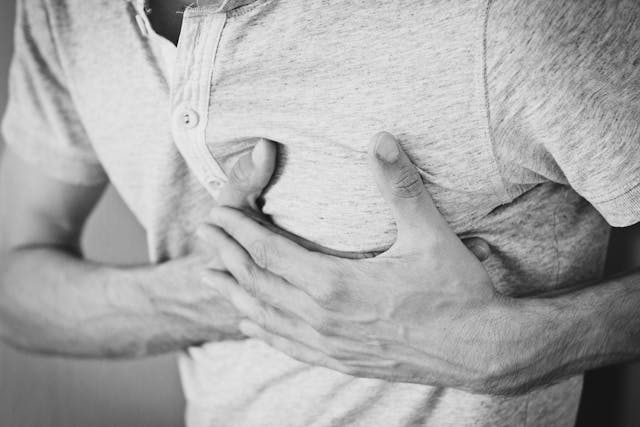Chest pain is a common concern that prompts many people to seek medical advice. While it doesn’t always indicate a serious issue, understanding when to seek help can help you manage your health effectively. Learning to recognize the various types and causes of chest pain is a key step in identifying when medical attention may be necessary.
Understanding the Different Types of Chest Pain
This can arise from various conditions, ranging from mild to severe. It is often categorized based on its characteristics. Some pain feels sharp or stabbing, while others may feel like pressure or a squeezing sensation. Certain types of discomfort may intensify with activity or improve with rest.
The location of chest pain can often provide clues about its source. Pain in the center of the chest with additional symptoms like shortness of breath might point to a heart-related issue. Discomfort in the ribs or muscles may result from injury or strain. Pinpointing the nature and location of your symptoms can help healthcare providers determine the underlying cause.
When It’s Not Just Heart-Related
Not all chest pain is caused by the heart. Some cases are due to other health issues, such as digestive disorders, lung conditions, or musculoskeletal problems. Acid reflux, also called heartburn, is a common non-cardiac issue that can cause burning sensations in the chest. Similarly, inflammation in the lining of the lungs (pleurisy) can lead to a sharp pain that worsens with breathing or coughing.
Certain types of pain can also originate from stress or anxiety. These situations may create tightness or a feeling of heaviness in the chest, mimicking heart-related concerns. Consulting a doctor can help separate heart-related issues from other causes and connect you with the appropriate treatment.
Signs of a Heart Attack
Recognizing the signs of a heart attack is a key part of seeking timely care. Discomfort in the center of the chest that lasts more than a few minutes or goes away and returns may signify a heart attack. This discomfort is often described as a squeezing, pressure, or fullness sensation.
Other symptoms to watch for include pain or discomfort that spreads to the shoulders, arms, neck, jaw, or back. Shortness of breath, nausea, lightheadedness, or a cold sweat may also occur. If you experience these symptoms, contact emergency services immediately.
When to Call 911 and When to See a Doctor
Some situations call for immediate emergency care, while others may require an appointment with your general doctor or a specialist. Calling 911 is necessary if chest pain is sudden, severe, or accompanied by symptoms like fainting, difficulty breathing, or intense discomfort radiating to other parts of the body.
For less severe cases, such as recurring mild chest pain or discomfort linked to physical activity, contacting a healthcare provider is a practical option. They can perform tests and evaluations to pinpoint the cause and recommend treatment. Knowing the appropriate level of care can save time and, potentially, lives.
Visit a Heart Specialist Today
Chest pain is a symptom worth addressing promptly, whether it’s mild or severe. While not every instance signals a medical emergency, seeking advice from a professional can provide clarity and peace of mind. Start by scheduling an evaluation with a heart specialist to uncover the underlying cause of your symptoms. Book your consultation today and take the first step in safeguarding your health.

